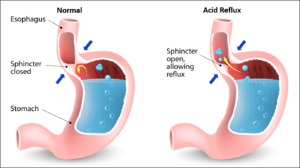A hernia develops when part of an organ protrudes through layers of muscle wall, fat and skin, forming a bulge. If you want to know how to prevent hernia in the future, read on.
“Most of the time a hernia does not cause pain and you would not even know about its presence unless you get physically examined for another condition or if it is detected through a preventive health check up, “ says Dr. Amarchand S. Bajaj, Senior Consultant, Laparoscopic, Bariatric and General Surgery.
Is there a way to prevent hernia?
There are certain ways in which a hernia can be prevented but it is important to note that only a few types of hernia may be preventable.
Your chances of developing a hernia increase if you
- Have a family history of hernias
- Frequently strain your abdomen
- Are overweight or
- Have weak muscles
“You can lower your chances of getting a hernia by working on aspects within your control,” informs Dr. Bajaj.
How can I prevent hernia naturally?
One of the first steps to prevent hernia naturally is to avoid any kind of strain or pressure on the abdomen.
“When patients ask us how to prevent hernia, we often tell them to pay attention to three aspects, ” shares Dr. Bajaj.
-
Straining due to coughing
If you have a persistent cough that is either due to allergies or tuberculosis, you must get it treated. “Repeated bouts of coughing contract the muscles in the abdomen and strain it.”
-
Straining due to constipation
If you face difficulty while passing stool or if you have frequent episodes of constipation due to which you have to exert yourself, you may end up straining the muscles in the abdomen.
“In addition, you could also be at risk of developing hemorrhoids or piles.”
Constipation is a fairly common condition, with 22% Indian adults suffering from it.
“The condition can, however, be easily prevented by consuming fibre-rich vegetables like spinach and legumes like pulses. “
The fibre content in the foods adds bulk and softens stools, stimulating the movements of the bowel, which enable the stool to pass through without much effort.
If you aren’t able to ease constipation naturally by only adding fibre to your diet, you can consult a doctor for laxative medicines that work in a similar manner.
-
Straining due to urination
It is common for men over 50 years to experience uneasiness while passing urine or feeling unable to empty their bladder.
“If you feel like you haven’t fully relieved yourself, you may attempt to do so multiple times – thereby straining your abdominal muscles.“
Such symptoms may indicate an enlarged prostate, wherein the prostate increases in size and tightens around the bladder constricting it so that the urine does not flow out completely.
“If you face difficulty in passing urine or wake up frequently at night to relieve yourself, you should see a urologist to diagnose and assess the condition early on.”
How else to prevent hernia from returning
If you’ve just had hernia surgery or any kind of surgery, it is critical to follow your doctor’s instructions on wound care.
Sometimes incision sites themselves could develop into incisional hernias if the muscles around them are sore and not taken care of.
How to prevent a hernia from getting worse
Though there is no treatment without surgery that would prevent a hernia from getting worse, you can reduce risks of damage by refraining from any activities that exert your abdominal muscles.
Some types of hernia such as hiatal hernia may cause symptoms like acidity, which can be brought under control naturally.
With a hiatal hernia, the esophageal sphincter (or muscle that acts as a barrier between the stomach and the oesophagus) weakens. As a result, part of the stomach protrudes through the diaphragm which is located above it.
“When this happens, gastric acid can flow into the oesophagus and cause heartburn.”

How to Lessen Hiatal Hernia Symptoms
You can lessen symptoms of a hiatal hernia by eating smaller, frequent meals, by having an early dinner and sleeping in a propped up position.
You should attempt these practices after discussing them with your doctor.
“Remember that any guidance on how to prevent hernias in the future will not do much if you already have a hernia, “ emphasizes Dr. Bajaj.
Hernia complications
If not treated on time, a hernia could get obstructed when a part of an intestine (bowel loops) gets stuck in the muscle wall leading to an ‘obstruction’. The obstructed hernia may then lead to ‘strangulation’ which refers to a loss of blood supply to the intestine (bowel loops).
“A strangulated hernia needs immediate attention.”
Can a hernia heal on its own?
A hernia cannot heal on its own or disappear with time.
“This is why we recommend speaking to an expert who can guide you on the best course of action for your situation,” says Dr. Bajaj.
This article has been written with Dr. Amarchand S. Bajaj who has over 17 years of experience as a laparoscopic, general and bariatric surgeon. He is well respected by both colleagues and patients for his thorough consultations and advice.


